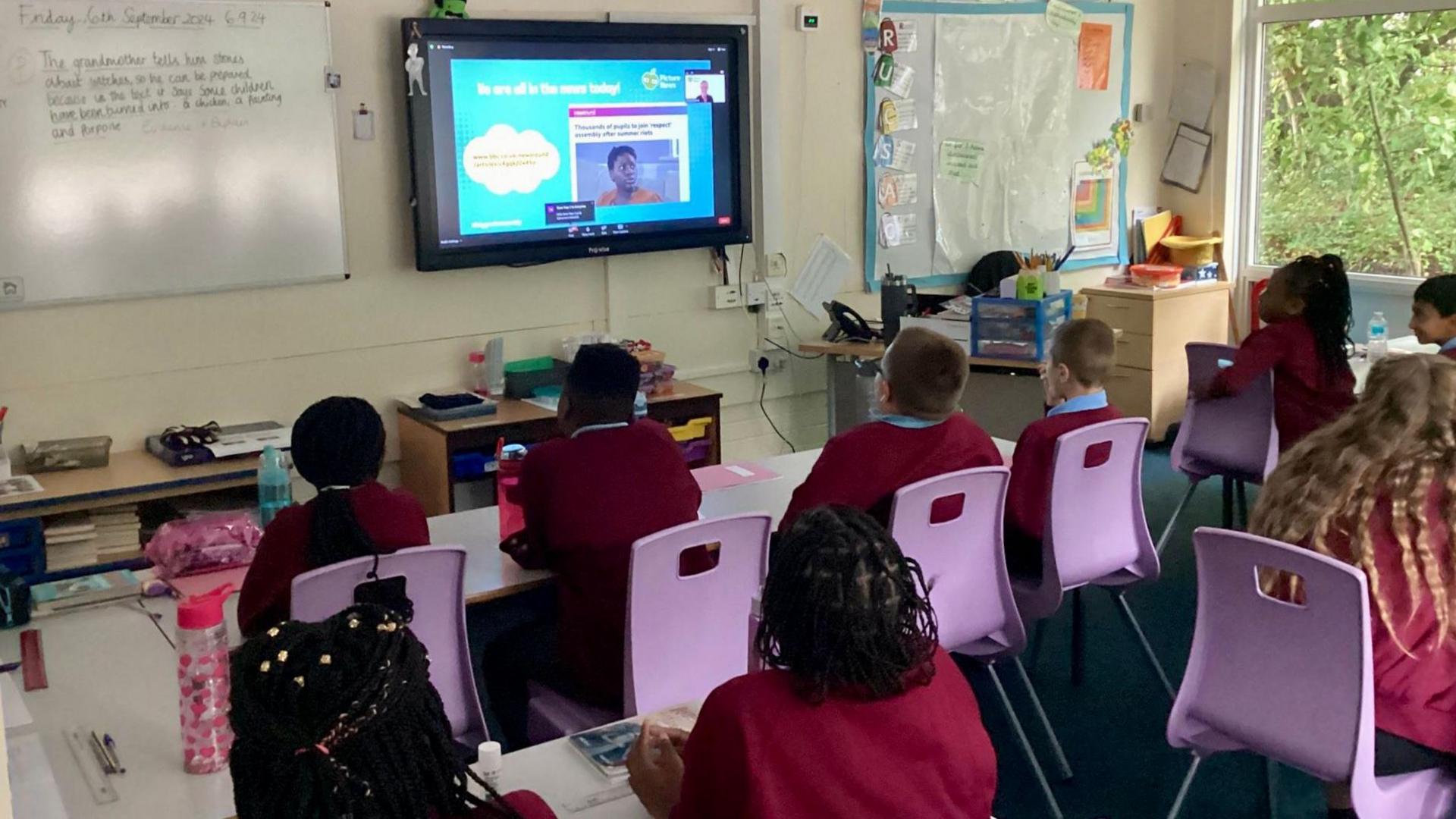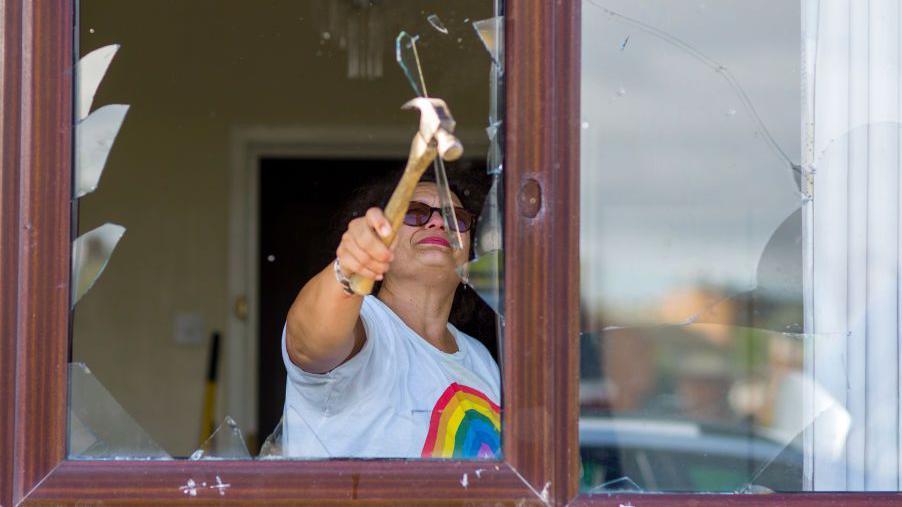Pupils shown assembly on respect after riots

The "Big Back to School Assembly" was streamed in schools across the UK
- Published
Schools have welcomed children back with an assembly promoting "respect and tolerance", after the summer holidays were blighted by riots.
The streamed assembly focused on some of the positive stories of communities coming together in the aftermath of the unrest.
The former teacher leading the assembly said she hoped it would help schools have a "fresh start".
Education Secretary Bridget Phillipson called the riots "a deeply powerful reminder of the importance of education".
The violence this summer began the night after a stabbing attack in Southport, in which three children attending a dance class were killed.
It spread to towns and cities across England and in Northern Ireland, fuelled by misinformation online, the far-right and anti-immigration sentiment.
'Calm in the chaos'
The "Big Back to School Assembly" featured a presentation from children at St Nicholas Church of England Primary Academy in Boston, Lincolnshire, where a map on the wall pinpoints all the countries in which its pupils were born, each one with facts to help them better understand one another's backgrounds.
"We believe being different is a good thing that should be celebrated," one pupil said.
With about 20 different languages spoken among the school's pupils, head teacher Fiona Booth said her staff were used to promoting a sense of "belonging" - but it was harder to do that during the summer holidays.
"[The assembly] is about just kick-starting where we left off before summer, because of everybody's different experiences," she said in an interview before the assembly.
"The things that have been streamed [on to] children's mobile devices, [on to] grown-ups' television screens - we've had no control over that. We've not been able to temper any of that. We've not been able to anchor or bring the calm in that chaos."
Mrs Booth said some children would have family members who may have taken part in the unrest, while others were from households targeted during the violence.
She is braced for some friction between pupils, but said tolerance was "not the same as liking everybody", and that one of the school's roles was to teach children "how to disagree well".
"It's about plugging back into that message and saying that the minute you put on your jumper, the minute you say this is the school you attend, what you're actually saying is, 'and I wholeheartedly uphold all of the values that St Nicholas promotes'," she said.
Riots show how the UK's far right has changed
- Published21 August 2024
Why are there riots in the UK?
- Published9 August 2024
Picture News, the company behind the assembly, has provided guidance for teachers dealing with difficult conversations.
The advice, which aims to give children a space to "share any worries" and "tackle any misconceptions", suggests teachers open discussions like this in the morning, so that children have the rest of the day to ask questions.
Sticky notes can be a good tool to encourage children to express their emotions, it says.
It advises teachers to "stick to the facts" during discussions and tell families what information they are sharing and why.
'Included'
The assembly, which was streamed in schools across the UK, was led by Katie Harrison, former teacher and co-founder of Picture News.
She asked pupils to share ideas about how to “make sure everyone feels included, happy and safe”.
"Learning about our differences can help us to understand each other better," she told them.

The "Big Back to School Assembly" focused on positive stories that took place after riots over the summer, such as volunteers coming together to clean up in Middlesbrough
Ms Harrison told the BBC that teachers reached out to the company over the summer asking for support on how to talk to children about the riots.
"We felt there was a huge need for it," she said.
"They knew that children would be coming back after the summer break and asking questions, wanting to talk about it," she added, noting that some will have "had quite a long period where they won't have had anybody to talk to about it".
She said 3,447 primary schools had registered for the event and estimated that about half a million children saw the assembly, which focused on positive stories.
She talked about Middlesbrough, for example, where hundreds of volunteers took part in a clean-up after cars were set alight and missiles thrown at police in August.
Ms Harrison said teachers had wanted a "fresh start" at the beginning of term.
"But equally they didn't want to ignore some of the events that have happened," she said.
"They wanted it to be addressed in some way. Hopefully we will do that for them and help them."
In a message to teachers this week, Ms Phillipson said the riots "shook us all".
"It’s important to recognise that many students and staff might be nervous about returning to the classroom," she said.
"These events are a deeply powerful reminder of the importance of education – to help people tell truth from lies, encounter and understand those from different backgrounds, and grow strong and inclusive values."